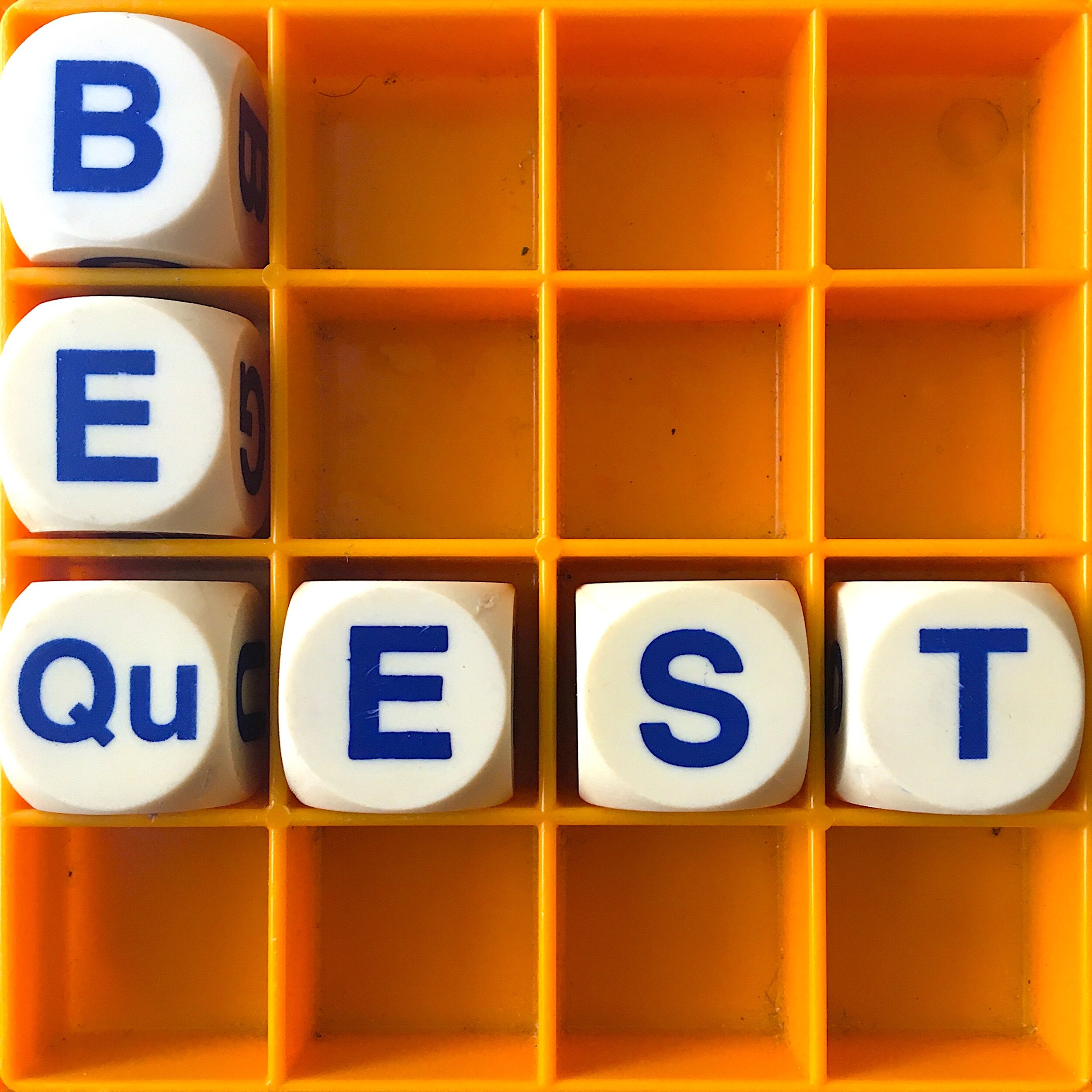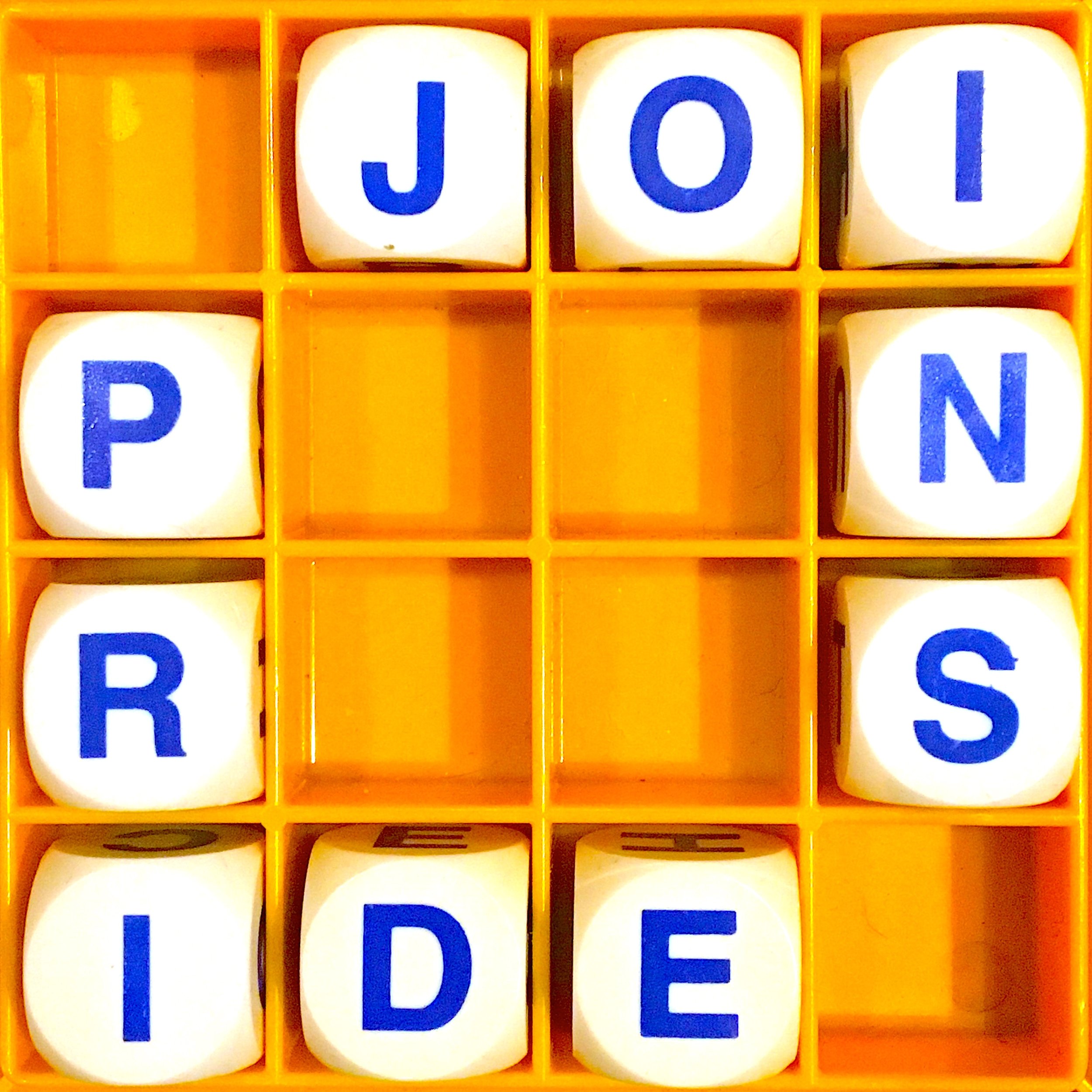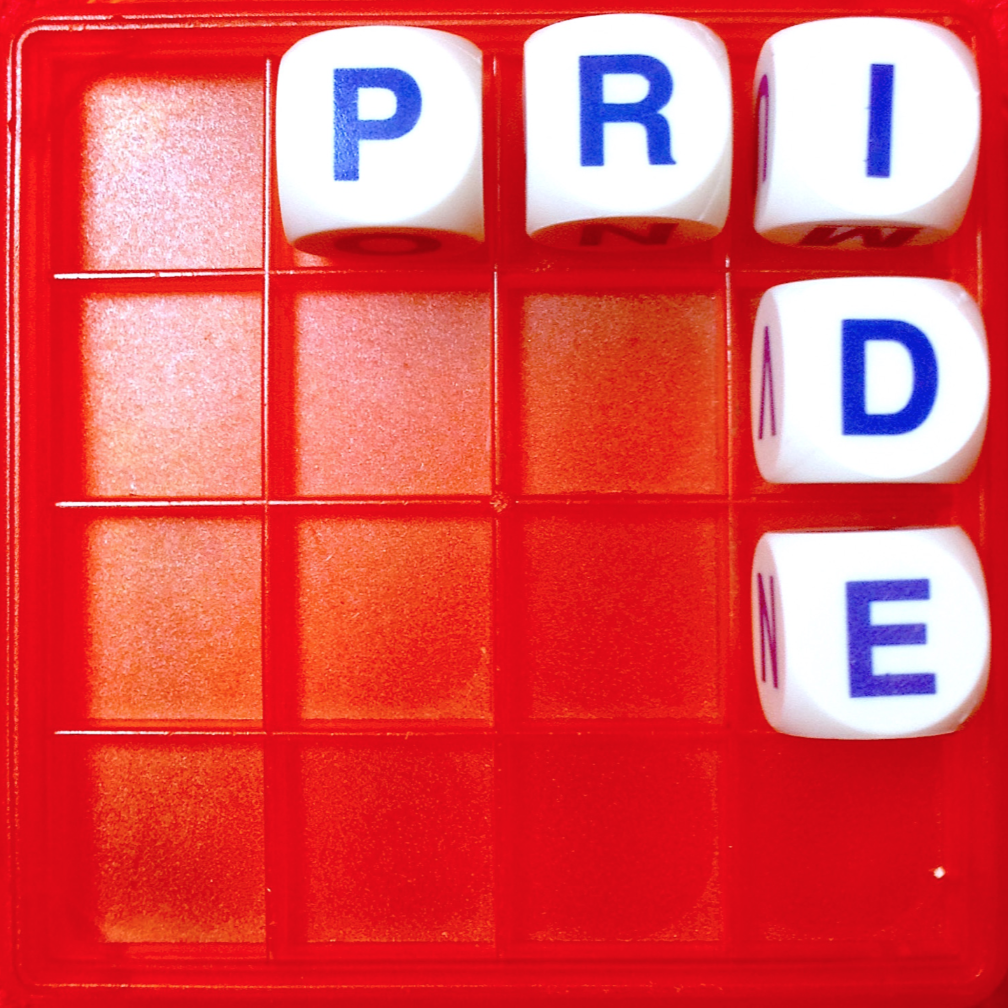When the Europeans arrived in Aotearoa New Zealand, as well as guns, stoats and Christianity, they brought ideas of cisgender monogamous heterosexuality that were imposed upon the Māori people as if there had never been anything else. But one word, takatāpui, proved otherwise.
Read moreAllusionist 117. Many Ways At Once
The Scots language didn’t have much of an LGBTQ+ lexicon. So writer and performer Dr Harry Josephine Giles decided to create one.
Read moreAllusionist 56+12. Joins & Pride
To celebrate Pride Month, I’m playing two of the Allusionist episodes that have stuck with me the most during the show’s existence.
The first is Joins. You listeners talk about your particular experiences in your trans bodies, dealing with the available vocabulary for sex and the associated body parts.
Second is Pride: the story of how that word was chosen in 1970 for LGBTQ Pride events.
Read moreAllusionist 99. Polari
When there were no safe spaces to be gay, Polari allowed gay men to identify and communicate with each other, and to keep things secret from outsiders.
Professor Paul Baker, author of the Polari dictionary and the upcoming book Fabulosa! The Story of Polari, Britain’s Secret Gay Language, explains how Polari emerged from criminal cant and London’s theatres and docks to be used a code language for gay men in the oppressive 1950s - and then, not long after, it entered the slang lexicons of the general public, via popular sketch comedy and the mouth of an annoyed princess.
Read moreAllusionist 79. Queer
Strange or obtuse; a stinging homophobic slur; a radical political rejection of normativity; a broad term encompassing every and any variation on sexual orientation and gender identity: the word 'queer' has a multifarious past and complicated present. This is just a fraction of it.
Tracing the word's movements are Kathy Tu and Tobin Low from Nancy podcast, Eric Marcus from Making Gay History, and historian and author Amy Sueyoshi, with Jonathan Van Ness from Queer Eye.
Read moreAllusionist 12 rerun: Pride
"Rarely has any social movement come so far in such a short space of time."
This week seems like a good one to listen again to last year's episode Pride, about how the word came to be chosen for LGBTQ Pride. Activist and publisher Craig Schoonmaker tells the story.
Read moreAllusionist 28: WLTM part I
iTUNES • RSS • MP3
Your online dating profile is the latest spin on a 300-year-old tradition of advertising yourself in order to find a spouse, a sexual partner, or someone to take care of your pigs.
Francesca Beauman, author of Shapely Ankle Preferr’d: A History of the Lonely Hearts Ad, digs into lonely hearts ads to see how British society and desires have evolved over the past three centuries.
WARNING: Some of the content is a little saucy, but not, like, swimming in sauce.
READING MATTER:
Reviews of hundreds of different dating sites? You got it.
I love reading the Blind Dates in the Guardian each Saturday, and The Guyliner’s dissection thereof shortly afterwards.
Atlas Obscura tests the Victorian seduction technique of reading aloud.
Not so much a lonely heart ad as a curious soul ad, but it resulted in one of the most intriguing books I’ve ever read: The Life Swap by Nancy Weber. Read about it here (NB spoilers).
Warlock: offensive term?
The transcript of this episode is at theallusionist.org/transcripts/wltm-i.
RANDOMLY SELECTED WORD FROM THE DICTIONARY:
extraposition
CREDITS:
Find Francesca Beauman at francescabeauman.com and buy her books, including the excellent Shapely Ankle Preferr’d, from your usual book-buying places.
This episode was produced by me, Helen Zaltzman.
Martin Austwick provided all the music.
Matthew Crosby provided his voice.
Allusionist listeners provided their dating profiles, for which I am extremely grateful.
WLTM you at facebook.com/allusionistshow, twitter.com/allusionistshow and twitter.com/helenzaltzman.
This is a two-parter, and the second half is an absolute belter, so return next week to hear it.
- HZ
Allusionist 12: Pride
iTUNES • RSS • MP3
"The poison is shame. The antidote is pride."
It’s June; the President of the USA has officially designated it LGBT Pride Month, and there’ll be Pride events around the world.
Activist and the publisher of Homosexuals Intransigent Craig Schoonmaker recounts how the word ‘pride’ was chosen, which eventually came to be the banner word for demonstrations and celebrations of LGBT rights and culture.
ADDITIONAL READING:
In the episode I contemplate the history of the word 'lesbian', and if you're also interested to know how 'gay' evolved from 'colourful' or 'cheerful' to its present meaning, read about it here and here.
For background on the Stonewall riots whence arose the Pride movement, listen to this short oral history on Witness by the BBC World Service. I haven't seen the Stonewall Uprising documentary, but the transcript is interesting.
Craig Schoonmaker mentions the Mattachine Society, one of the first gay rights organisations in the USA. Here's a short history; this was its mission statement (from probably the mid-1960s), and here's what the FBI thought of it.
Fred Sergeant remembers the first Pride march.
Barack Obama officially proclaims June 2015 to be Pride Month.
There is a movement called Gay Shame, founded in 1998 as a protest against/alternative to what they saw as the overcommercialisation and conservatism of Gay Pride. Read about them here.
There is a transcript of this episode here.
CREDITS:
L. Craig Schoonmaker has several websites, including Mr Gay Pride, featuring articles and materials going all the way back to 1969; the Mr Gay Pride blog is also very interesting. He also runs a photo journal about Newark, NJ, as well as a version making the case for phonetic (fonetik?) spelling of English.
This episode was produced by me and Eleanor McDowall of Falling Tree, with help from Peregrine Andrews.
All the music in this episode is by Martin Austwick. Hear and/or download more at thesoundoftheladies.bandcamp.com.
Find me at facebook.com/allusionistshow, twitter.com/allusionistshow and twitter.com/helenzaltzman.










